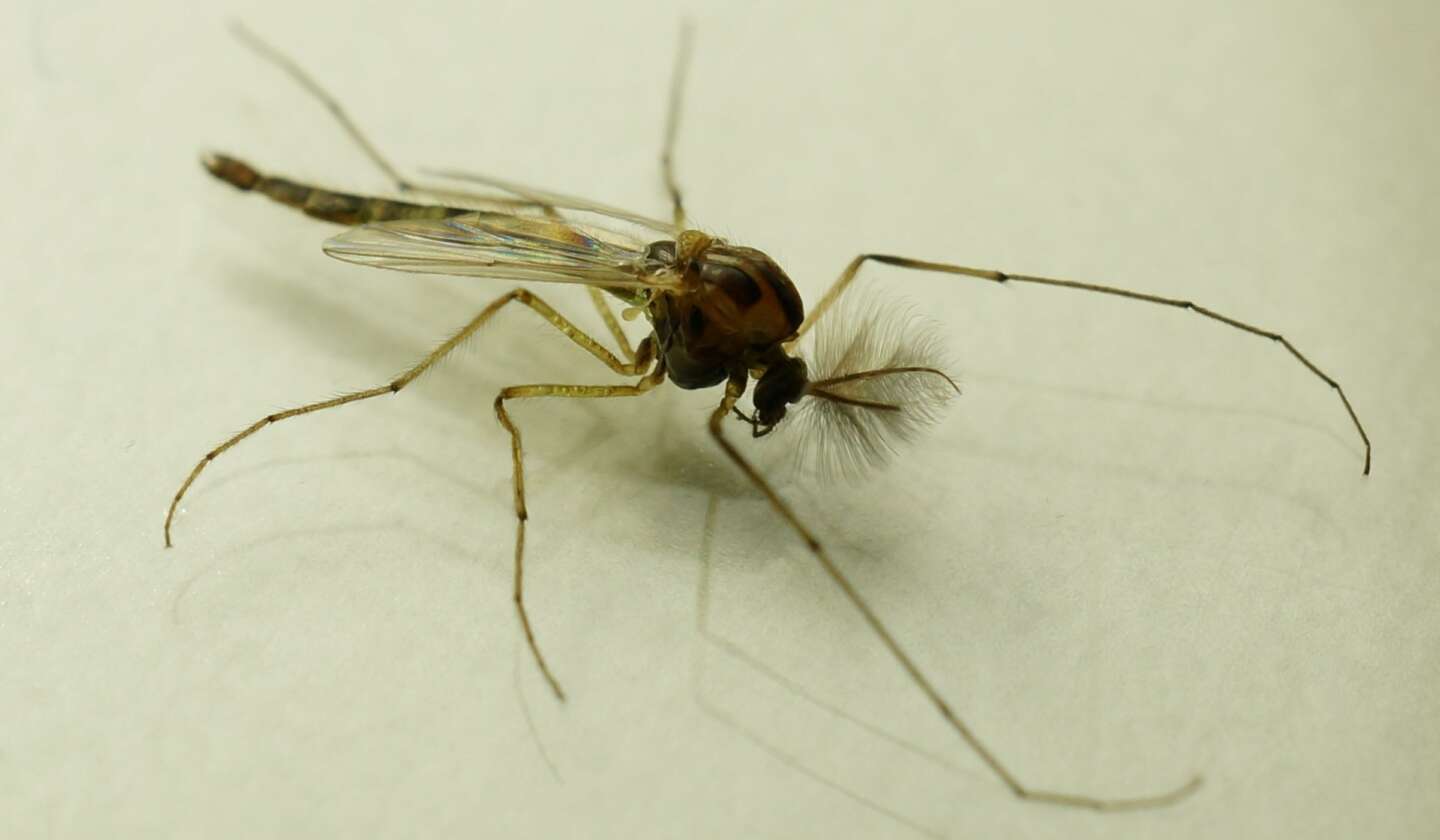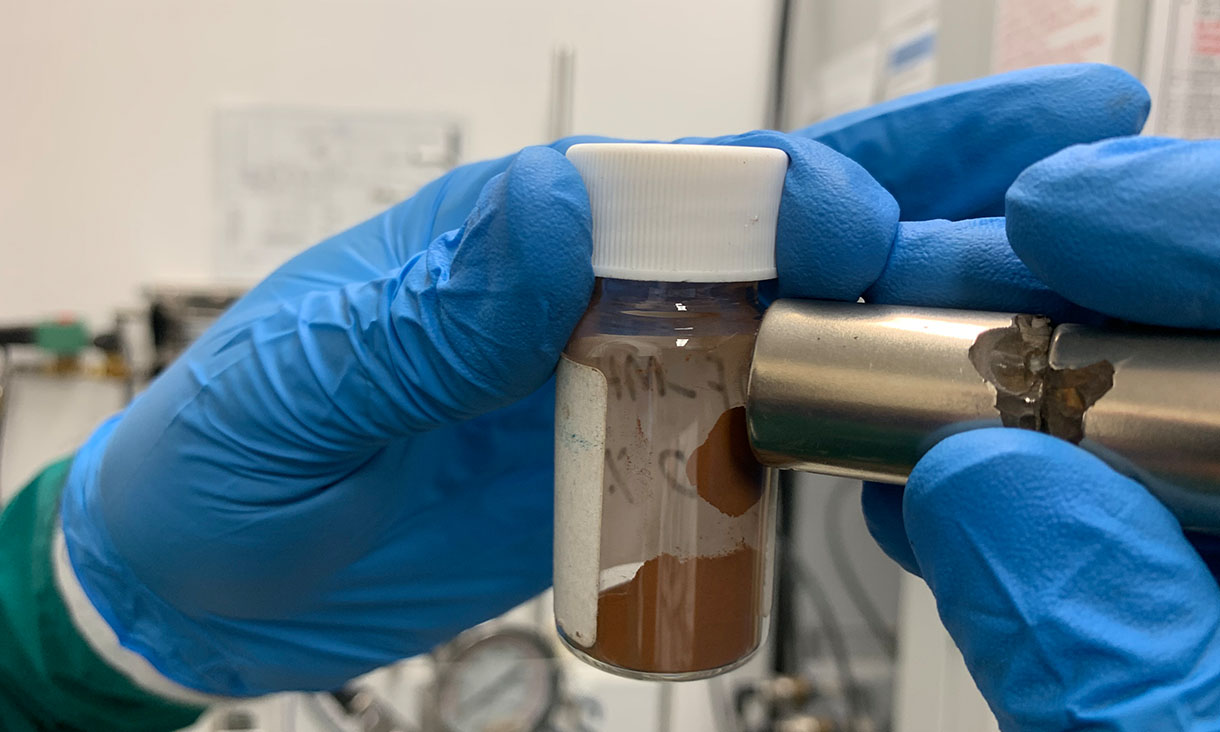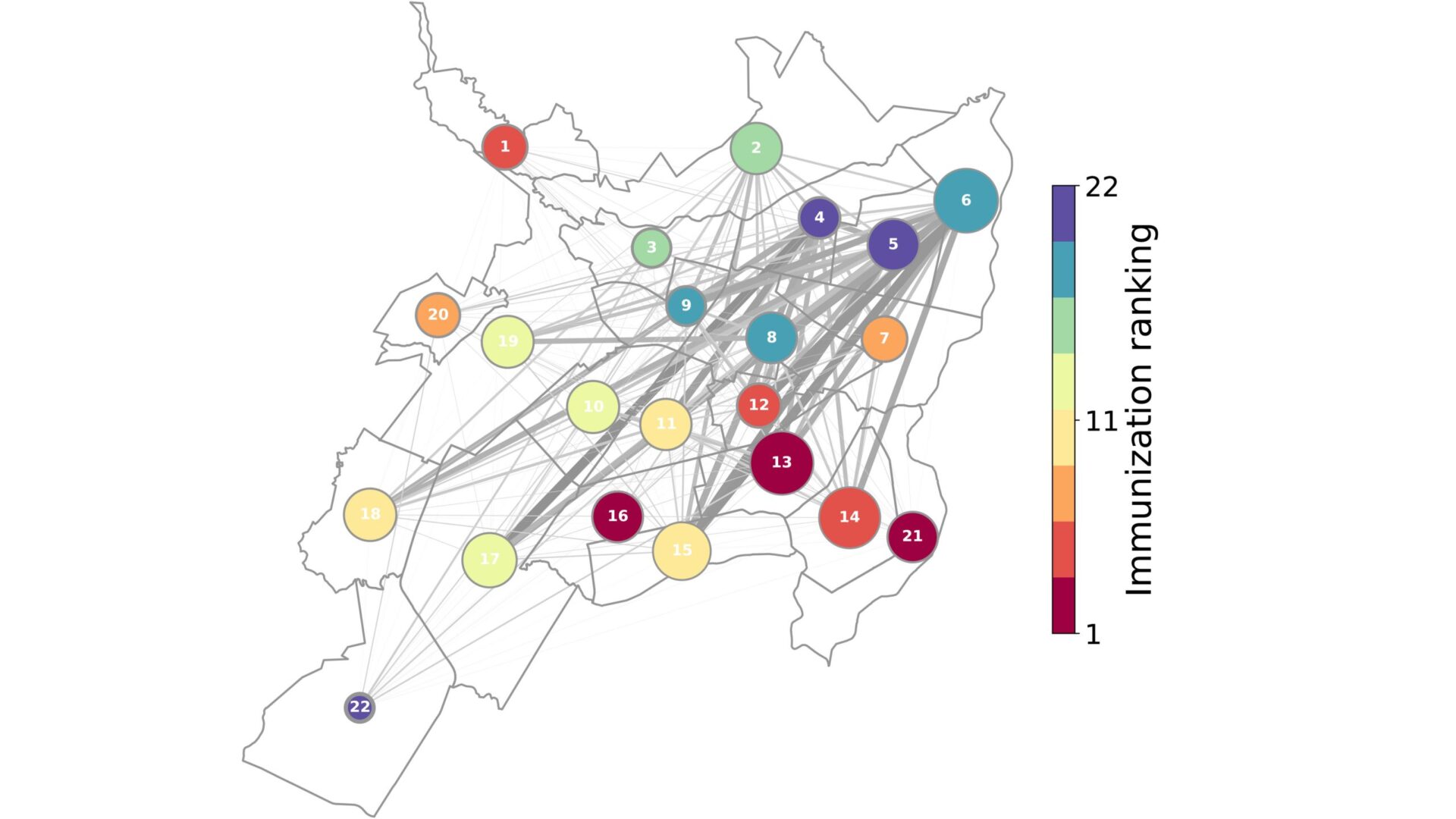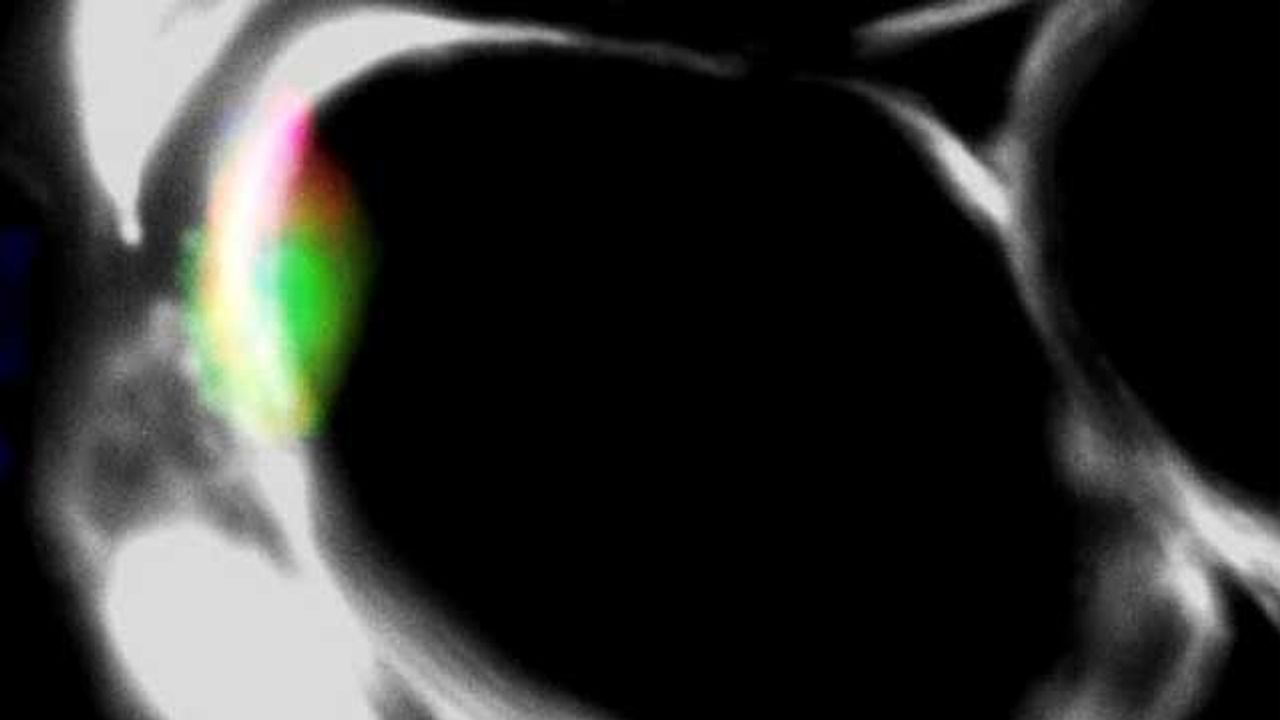
via Senckenberg Biodiversity and Climate Research Centre Frankfurt
Dangerous plastics
The fact that microplastics can also trigger evolutionary changes has now been shown for the first time by an international team of scientists from the LOEWE Centre for Translational Biodiversity Genomics (TBG), the Senckenberg Biodiversity and Climate Research Centre Frankfurt (SBiK-F) and the Estonian National Laboratory of Chemistry and Physics. Their genomic study was published in the scientific journal „Chemosphere“. According to the study, the ingestion of microplastic particles triggers an evolutionary adaptation in the freshwater non-biting midge Chironomus riparius.
In an experiment over several generations of midges, they were exposed to a concentration of microplastics like those found in the environment. This initially showed a loss of fitness in the form of death rates of up to 50 per cent. Subsequently, an interesting development started: Within three generations, the midges adapted to the uptake of the pollutant, so that there was no longer any difference to the control group in terms of survival rates. At the same time, however, changes were registered in their entire genome, which can be interpreted as the reason for this incredibly rapid adaptation. In particular, those genes that play a role in combating inflammation and oxidative stress – a material imbalance in cells that impairs repair and detoxification functions – showed signs of evolutionary adaptation.
Study author Dr. Halina Binde Doria from the LOEWE Centre TBG and the SBIK-F classifies the results: „Even though the twitching midges were able to adapt very quickly to microplastics, this is only partially good news. This may not reflect the situation in natural populations and ecosystems. Many different factors have to be considered.“ For one thing, the experimental situation may not show all the negative effects of microplastics on survival or reproduction rates, in short, evolutionary fitness. For example, the ingestion of microplastic particles directly or indirectly influences nutrient uptake in the intestine and can have negative effects in nutrient-poor phases, for example in winter. Adaptation to microplastics can also override important other adaptations, such as the control of mutation rates. Furthermore, it is known that not all species can adapt as quickly as midges. For these, microplastics would have harmful effects in the longer term.
Study leader Prof. Markus Pfenninger, also working at the LOEWE Centre TBG and the SBiK-F as well as at the Johannes Gutenberg University Mainz, summarises: „Our study shows that microplastics in the environment have the potential to change the evolutionary development of species exposed to them forever. Even if there seem to be no immediate harmful effects, microplastics pose a hitherto underestimated threat to all ecosystems. We now want to further investigate the genomic responses of chironomid midges to microplastics as an example, as they are well suited for these analyses due to their fast reproductive rate, ease of maintenance in the laboratory and the available reference genome.“
Original Article: Dangerous plastics
More from: Leibniz Association | Johannes Gutenberg University of Mainz
The Latest Updates from Bing News & Google News
Go deeper with Bing News on:
Microplastics trigger evolutionary changes
- What You Can Learn From The Security Industry's Evolution
For leaders, there's much to glean from the industry's evolution. Change is a constant, and so is innovation. The safety and security sector joins many other industries that have experienced ...
- Evolutionary Biology News
Unlocking the Genetic Mysteries Behind Plant Adaptation: New Insights Into the Evolution of a Water-Saving Trait in the Pineapple Family (Bromeliaceae) Apr. 30, 2024 — Researchers have achieved ...
- 'Bizarre' Finding Changes the Way We Think About Human Evolution
In the past, scientists believed that hominin evolution was largely driven by changes in climate. But now, research from the University of Cambridge has suggested that competition was, in fact ...
- Evolution Invests in IPCS, Changes Name to DataFit
HUDSON, Ohio, April 10, 2024 /PRNewswire/ -- Evolution Capital Partners LLC ("Evolution") announced a new strategic growth investment in Industrial Physical Capability Services, Inc. (IPCS).
- We were very wrong about birds
These evolutionary changes shed new light on the adaptive mechanisms that drove the diversification of bird species in the aftermath of this planet-altering extinction event. To do this ...
Go deeper with Google Headlines on:
Microplastics trigger evolutionary changes
[google_news title=”” keyword=”microplastics trigger evolutionary changes” num_posts=”5″ blurb_length=”0″ show_thumb=”left”]
Go deeper with Bing News on:
Ingestion of microplastics
- Microplastics: A looming threat to our well-being
Microplastics have been found to contain a variety of toxic chemicals, including carcinogens and endocrine disruptors, which may leach into the environment upon ingestion. Moreover, their small size ...
- Experts tell lawmakers about harmful effects of microplastics
(Photo by Alistair Berg, via Getty Images) Microplastics can be found virtually ... inhalation, and ingestion that studies have found evidence of plastic in people’s organs, blood, breast ...
- Experts tell lawmakers about harmful effects of microplastics
One expert cited a link between the creation of plastic and dramatically declining fertility rates and sperm counts.
- Microplastics may spread from gut to brain, finds study
In a study published in Environmental Health Perspectives, researchers examined how consuming microplastics in amounts similar to those found in our environment affected mice. Microplastics, found in ...
- Study Finds Microplastics In Blood Clots Increase Heart Attack, Stroke Risk: Here’s How You Can Be Safe
Due to their small size, microplastics can enter our bodies through ingestion, inhalation, or skin contact. Talking about a heart attack, or myocardial infarction, it occurs when blood flow to a ...
Go deeper with Google Headlines on:
Ingestion of microplastics
[google_news title=”” keyword=”ingestion of microplastics” num_posts=”5″ blurb_length=”0″ show_thumb=”left”]










